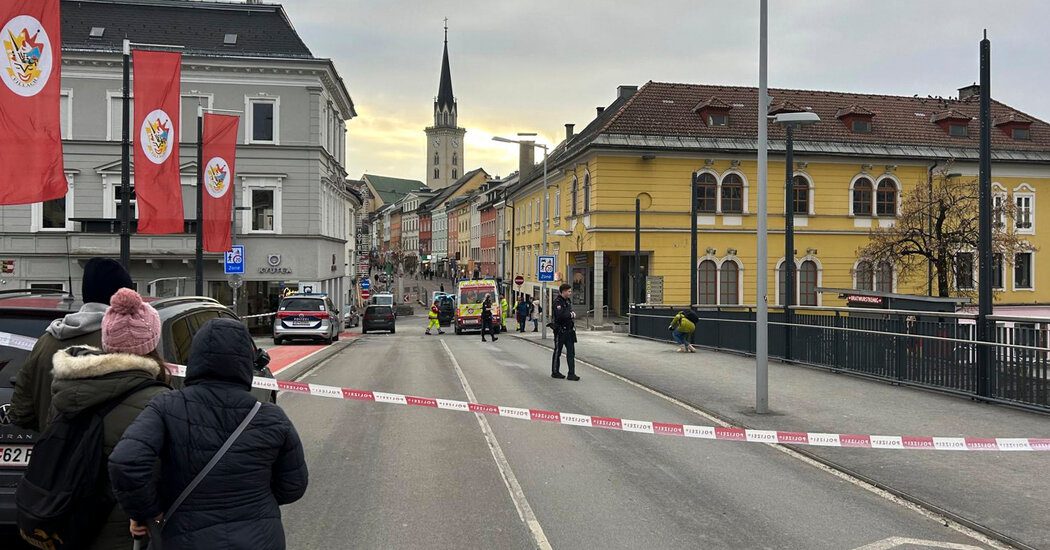
Austrian authorities reported that the individual detained for a knife attack in Villach, Austria, which resulted in the death of a teenager and injuries to several others, was reportedly influenced by the Islamic State extremist group. This information was confirmed by officials on Sunday.
According to Austria’s Interior Minister Gerhard Karner, the suspect, who was apprehended shortly after the attack on Saturday, had become radicalized through online channels. It remains uncertain if he was acquainted with the victims.
The incident occurred at approximately 4 p.m. local time, claiming the life of a 14-year-old and injuring four others, as stated by the mayor of Villach—a city situated in southern Austria near the borders of Italy and Slovenia. Police reported to The Associated Press that two of the injured were in serious condition.
The accused is identified as a 23-year-old Syrian man with legal residency in Austria, according to local police in an interview with ORF Austria’s public broadcaster. His exact living situation in Villach is currently unknown, and investigators are looking into his background, as mentioned by Rainer Dionisio, a spokesperson for the Carinthia police department.
Carinthia’s governor, Peter Kaiser, has called for the "severest consequences" for the attacker, advocating that he "should face trial, imprisonment, and deportation," as he expressed in a post on X. Meanwhile, Villach’s mayor, Günther Albel, stated on Meta, “To all those who spread hatred and violence, know that you will not prevail.”
In recent months, several similar incidents in neighboring Germany, including a car attack in Munich, have heightened the focus on migration in the country’s national election discourse.
Since the outbreak of civil war in Syria in 2011, millions have fled the country seeking refuge in Europe, following protests against the long-standing authoritarian regime of Bashar al-Assad. This significant influx of refugees has stressed European social safety nets and raised integration concerns, occasionally giving rise to openly xenophobic sentiments, which have empowered right-wing nationalist movements.
The fall of the Assad regime last December led several European nations to suspend legal asylum processes for Syrians. Austria has announced plans to deport Syrians whose asylum requests have been denied.
Notably, violent incidents are rare in Austria, which was ranked as the fifth safest country globally in 2023, according to the Global Peace Index.









